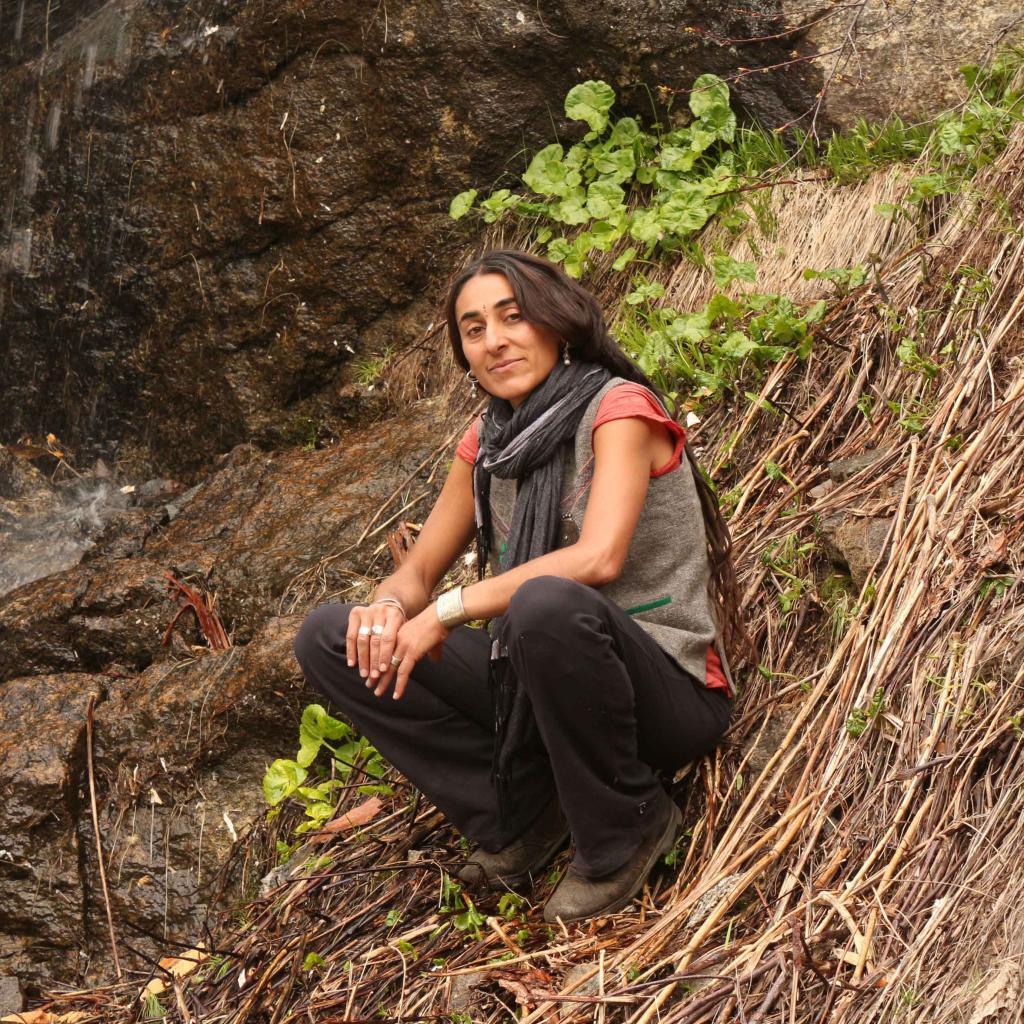Alumnus
Alumnus
- BS, Interdisciplinary Studies: Social Ecology, Humboldt State University, 1997
- MA, Interdisciplinary Studies: Globalization and the Environment, Humboldt State University, 2003
- PhD Candidate, Environmental Science, Policy and Management, University of California Berkeley, 2008- Present, (Expected 2015)
Community-based natural resource management, sustainable mountain livelihoods, international development, tribal/indigenous studies, gender, political ecology, India
My PhD research investigates the consequences of rapid socio-economic change on agro-pastoralist tribal people in the Kinnaur District of the state of Himachal Pradesh in the Indian Himalayas. My research project, “Changing Livelihoods in Kinnaur: From Subsistence to Apple-based Market Economy,” explores the transition of the past several decades from agro-pastoral-based subsistence to a market economy dominated by apple production and tourism. I examine changes in land use, social institutions and culture that have accompanied this economic transition. Specifically, I am interested in how the transition to a market economy is expressed in different spheres of social organization: livelihood activities, community/family structure and decision-making, natural resource management practices and institutions, and gender roles and relationships.
Broadly, I am interested in how rural mountain communities relate to their natural environment, how outside intervention either encourages or discourages support for resource conservation, and how incentives (sustainable community-based economic initiatives) can be used to encourage the active participation of local communities in conservation efforts.
-
Rahimzadeh, A. 2008. The Voices and Perspectives of MOBILE peoples in International Treaties/Policies. In Kothari Ashish “Local Voices in Global Discussions: How far have international conservation policy and practice integrated indigenous peoples and local communities?” American Museum of Natural History, 2-5 April, 2008
Rahimzadeh, A. 2001. Cultures of Iran, Pakistan and Central Asia. Interactive CD ROM. Humboldt State University, Arcata
Conference Papers
2013 “Changing Livelihoods in Kinnaur: From Subsistence to an Apple-based Market Economy.” Fulbright Conference/US-India Educational Foundation, Kochin, India, February 25.
2010 “Van Gujjar Nomadic Pastoralist Community and Conservation.” Annual Meeting of the Association of American Geographers, Washington, DC, 16 April.
2009 “Van Gujjar Nomadic Pastoralists and Rajaji National Park.” UC Human Rights Fellows Conference, Berkeley, CA, 5 November.
-
2012 US Student Fulbright award to South and Central Asia
2012 Critical Language Enhancement Award
2012 American Institute of Indian Studies (declined)
2010 UC Berkeley Graduate Division Summer Grant
2010 Honorable Mention, Graduate Fellowship - National Science Foundation
2010 Honorable Mention, Ford Foundation Diversity Fellowship
2009 Foreign Language and Area Studies (FLAS) Fellowship
2009 UC Berkeley ESPM Departmental Conference Travel Grant
2009 UC Human Rights Center Fellowship
2009 Honorable Mention, Graduate Fellowship - National Science Foundation
Graduate Student Instructor: Intro to Culture and Natural Resource Management (ESPM 50AC), Fall 2013
Graduate Student Instructor: Intro to Culture and Natural Resource Management (ESPM 50AC), Spring 2012
Graduate Student Instructor: Water and Development (ERG 175), Fall 2010
Aspirations
I am interested in community-based natural resource management in indigenous mountain communities of South Asia. My goal is to investigate the potential for sustainable small-scale economic initiatives to fund participatory conservation efforts which can improve sustainability of resource management practices in rural mountain communities. As mountain environments are strained by the impacts of resource use by growing human populations and the escalating adverse effects of global climate change, I hope to contribute to holistic approaches to conservation that encompass sustainable livelihoods for mountain communities. I believe issues of sustainable livelihoods and conservation are inherently intertwined and complex. An interdisciplinary approach is essential for solving complex human-environment problems, and particularly the problems of rural livelihoods and conservation.


